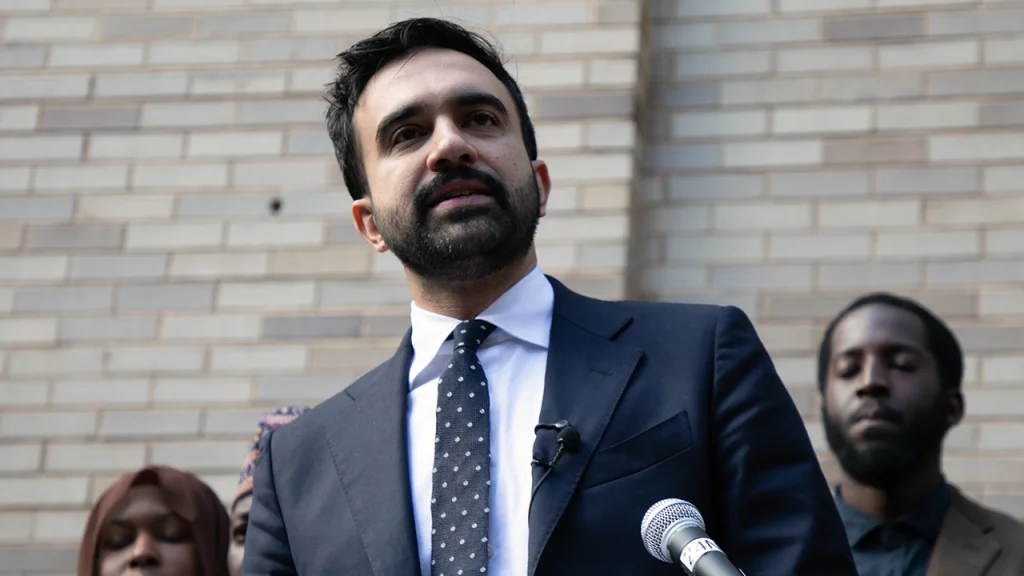A Political Candidate’s Controversial Claims About Post-9/11 Experiences
In the heat of New York City’s mayoral race, candidate Zohran Mamdani finds himself at the center of controversy following the resurfacing of a 2020 campaign video. In this footage from his State Assembly campaign, Mamdani shares personal accounts of alleged anti-Muslim discrimination he experienced following the September 11 terrorist attacks. His narrative paints a picture of what he describes as “exceptions” to American tolerance – moments when he felt his identity marked him as an outsider despite New York’s reputation for inclusivity. The video shows Mamdani telling potential voters how a teacher pulled him aside on 9/11 to warn him about potential bullying, and how at age 15, airport security separated him from his family to question whether he had attended a terrorist training camp.
Mamdani’s identity journey forms a central part of his political narrative. “In Uganda, I was Indian. In India, I was Muslim, and then, when we moved to New York, I was all of those things,” he explains in the video. He acknowledges New York’s promise of belonging – the idea that anyone can become a New Yorker regardless of background – but qualifies this with what he calls the “exceptions” he experienced throughout his childhood. These moments, according to Mamdani, revealed limitations to America’s promise of acceptance and equal treatment. This framing of his personal history has become increasingly scrutinized as he pursues higher office in one of America’s most prominent cities.
The controversy gained renewed attention when conservative activist Amy Mek reshared the video on social media. Mek’s commentary was pointed and politically charged, characterizing Mamdani not as a progressive candidate but as a “jihadi-Marxist political asset weaponizing 9/11 trauma to capture votes.” This inflammatory framing exemplifies how personal narratives about discrimination can become lightning rods in political discourse, particularly when they touch on sensitive historical events like 9/11. The resurfacing of this older content during Mamdani’s mayoral campaign demonstrates how candidates’ past statements can follow them into new political contexts, often with amplified scrutiny.
This isn’t the first time Mamdani’s comments about post-9/11 experiences have attracted criticism. He previously claimed that his aunt stopped taking the subway in New York City after the attacks due to an “undercurrent of suspicion” directed toward Muslims. This narrative drew sharp rebuke from prominent political figures, including Vice President JD Vance, who sarcastically commented, “According to Zohran, the real victim of 9/11 was his auntie who got some (allegedly) bad looks.” Such pushback highlights the complex politics surrounding personal narratives of discrimination, particularly when they intersect with national tragedies. For many critics, Mamdani’s framing appears to reposition victims of discrimination as the primary casualties of terrorism rather than those directly harmed in the attacks.
The controversy illuminates broader tensions in American political discourse around identity, discrimination, and historical memory. For supporters, Mamdani’s willingness to share these experiences represents important testimony about the real consequences of post-9/11 Islamophobia and xenophobia in American society. His accounts align with documented patterns of increased discrimination, profiling, and suspicion directed toward Muslim Americans and those perceived to be Muslim in the aftermath of the terrorist attacks. For critics, however, these narratives appear self-serving, politically calculated, and potentially disrespectful to the thousands who lost their lives in the attacks themselves.
As New York’s mayoral race continues, this controversy exemplifies how personal narratives can become political battlegrounds. The city that experienced 9/11 most directly remains shaped by its aftermath, with different communities carrying vastly different memories and interpretations of that period. Mamdani’s campaign has not yet publicly responded to this renewed criticism, but how he addresses these concerns could significantly impact his candidacy in a city where 9/11 remains a defining moment in collective memory. As early voting gets underway in New York, voters will ultimately decide whether Mamdani’s personal narrative and political vision align with their understanding of the city’s past and their hopes for its future.


